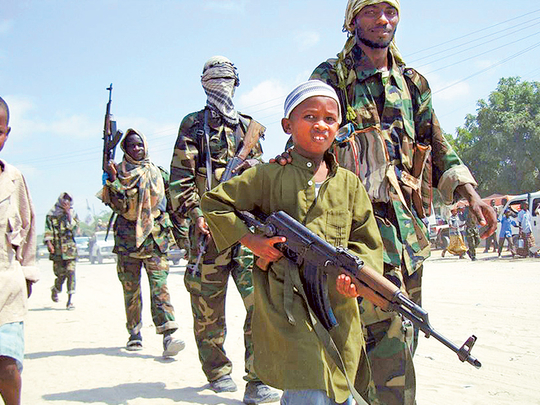
Dubai: The International Criminal Court (ICC) will be greatly weakened by the decision of African Union (AU) states to withdraw from its governance — to the point where the judicial body will effectively be in a deep sleep, legal experts say.
And because the court has focused essentially on cases and alleged abuses in Africa, it failed to effectively deal with crimes and malfeasance committed in other regions.
“It seems that the impact of the ICC court is extremely weak,” said Ghassan Al Jundi, a professor of international law at the University of Jordan. “Since its establishment after the Rome Treaty in 2002, the ICC has issued just two verdicts: one in 2011 and a second one in 2016.”
Al Jundi said that these two judgements alone speak of the failure of the ICC.
He pointed out that the International Tribunal for the Law of the Sea, which was established at the same time as the ICC, has issued 16 separate verdicts in a range of cases.
“It seems that banana peels and orange skins were thrown under the feet of the court,” he said jokingly.
The 2011 case was against Thomas Lubanga Dyilo, a Congolese national who was president of the Union of Congolese Patriots, an armed group that had been implicated in many serious human rights abuses including the abduction and use of children as soldiers, and summary executions.
The second case in 2016 was against Ahmad Al Mahdi, a senior member of the Ansar Eddine armed group, who was sentenced to nine years of imprisonment for intentional attacks against religious buildings and historical monuments in the northern town of Timbuktu in Mali.
“The ICC was selective to a great extent and all its cases were related to African countries,” Al Jundi told Gulf News. “The alleged crimes of former US President George W. Bush in Iraq and Israeli crimes in its three wars on the Gaza Strip were not referred to the court.”
Both the US and Israel have not signed the ICC statute and neither is a member of the court.
Some legal experts believe that it would be possible to indict Washington and Tel Aviv by resorting to other articles of Rome Treaty, specifically, articles 13 and 15, which provide for referring a non-member state to the court through the United Nations Security Council, or a small group of lawyers assigned by the court’s public prosecutor.
However, those legal experts also acknowledge the impossibility of the US — one of the five permanent members of the Security Council — referring itself to the ICC. “The withdrawal of the African countries will significantly weaken the court,” said Nabeel Abdul Fatah, an adviser to the Cairo-based Al Ahram Strategic Studies Centre.
“The African withdrawal was an act of solidarity by the Africa nations, where many crimes against humanity are committed during civil and ethnic wars, and the excessive use of force and violence in conflicts,” Abdul Fatah told Gulf News.
Several African and Arab countries have stood beside Sudanese President Omar Al Bashir, who was charged by the ICC over crimes committed in Darfur. Despite the charges he has been free to visit foreign nations, and none have executed the ICC warrants against him.
And unless the ICC reforms, it has little hope of ever being effective.
“If the ICC doesn’t reform itself, it will go into deep sleep,” Al Jundi said.












